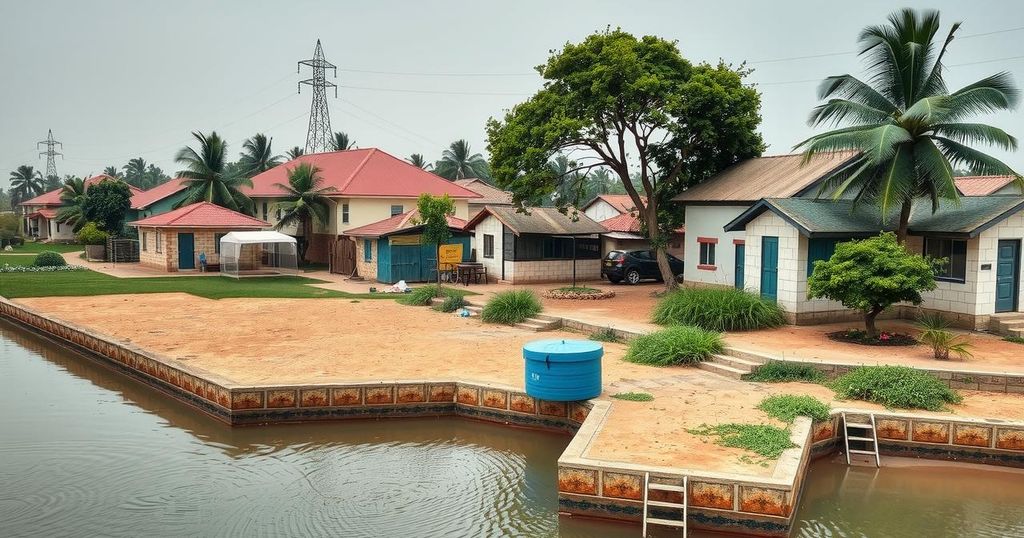Côte d’Ivoire experiences robust economic growth, averaging 6.4% GDP over the past decade, while combating significant challenges such as informal employment and climate change vulnerabilities. The IMF supports the country’s reform efforts through programs focused on revenue mobilization and sustainable development strategies. Minister of Finance Adama Coulibaly emphasizes the significance of public investment in infrastructure, contributing to poverty reduction and macroeconomic stability.
Côte d’Ivoire has emerged as a beacon of growth and stability in West Africa, exhibiting remarkable economic resilience and a steadfast commitment to reforms. Over the past decade, the nation has recorded an average GDP growth of 6.4 percent, coupled with low inflation rates around 2.2 percent, significantly reducing the poverty rate. Despite these accomplishments, challenges such as pervasive informal employment and vulnerability to climate change remain prominent. The government’s efforts toward economic diversification are crucial to enhancing resilience against climate-related adversities.
During the recent 2024 Article IV consultations, the IMF evaluated Côte d’Ivoire’s progress and the impact of various financial support facilities. Minister of Finance Adama Coulibaly highlighted that the country’s economic performance surpasses sub-Saharan averages, attributing this success to sustained public investment in infrastructure and a commitment to significant reforms. Furthermore, Côte d’Ivoire has become the first sub-Saharan African nation to re-enter international financial markets since 2022, earning a favorable BB sovereign debt rating from Standard and Poor’s.
Domestic revenue mobilization is an essential component of Côte d’Ivoire’s strategic plan, targeting fiscal capacity to fund educational and health initiatives vital for its ambitious economic transformation. As emphasized by Olaf Unteroberdoerster, IMF Mission Chief, this approach aims to achieve compliance with the West African Economic and Monetary Union’s fiscal targets while maintaining a low risk of debt distress. Recent reforms include a medium-term revenue mobilization strategy designed to enhance equity and efficiency in the tax system.
Côte d’Ivoire is also addressing the business climate and increasing private sector participation through several initiatives. The government is enhancing public service delivery, improving governance, and reducing informal employment through vocational training and gender equality measures. Additionally, efforts to adhere to Financial Action Task Force guidelines are expected to facilitate Côte d’Ivoire’s removal from the FATF “grey list.”
In terms of climate change vulnerabilities, Côte d’Ivoire faces significant risks such as sea-level rise and altered rainfall patterns that threaten its agriculture-centric economy. To combat these issues, the IMF supports a comprehensive reform agenda backed by a $1.3 billion arrangement focusing on climate finance integration, governance enhancements, and resilience-building measures. Collaborative initiatives announced at COP29 are set to further mobilize climate financing for sustainable development in the nation.
The country’s proactive stance in adapting to economic changes while addressing climate vulnerabilities underscores its potential to achieve upper-middle-income status and secure a sustainable future for its citizens.
Côte d’Ivoire, recognized for its strong economic performance and stability, stands as a critical player in West Africa. Over the years, the nation has registered robust growth rates while maintaining macroeconomic stability despite global economic turbulence. However, it faces structural challenges such as informal employment and reliance on specific sectors, notably agriculture. The ongoing dialogue with the IMF focuses on fiscal reforms and strategies aimed at adapting to climate change and ensuring sustainable economic development.
In conclusion, Côte d’Ivoire’s journey toward robust economic transformation and climate adaptability is marked by resilience and strategic reforms. The nation’s commitment to mobilizing domestic revenue, enhancing its business climate, and addressing climate vulnerabilities showcases its ambition to achieve upper-middle-income status. With continued support from the IMF and a focus on sustainable policies, Côte d’Ivoire appears well-positioned for future growth and stability in the region.
Original Source: www.imf.org






